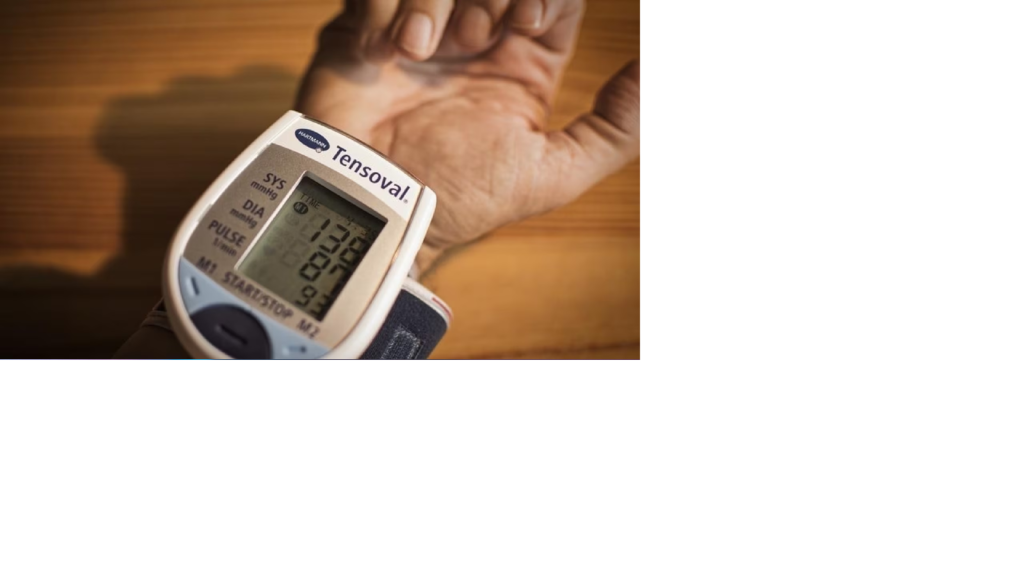Hypertension or high blood pressure has affected more than 1.28 billion adults across the world. Truthfully, it is so common that you may know someone close to you or someone living around you diagnosed with hypertension. Hypertension is known as a silent-killer as people often do not have any symptoms until a person has had complications such as kidney failure or heart diseases from the long-term of ongoing untreated hypertension causing damage to organs. Often, people with hypertension only know that they have high blood pressure when they get sick from another disease and accidentally found out after doing a blood pressure monitor. It is estimated that only less than half of adults with hypertension are diagnosed and get treatments. Antihypertensive medications such as Azoren 40 g can help control blood pressure.
Hypertension is defined as the systolic blood pressure values of above 130mmHg and/or diastolic blood pressure more than 80mmHg. The systolic pressure is a result of a pressure from a force as the heart pumps blood into the arteries and diastolic blood pressure is a result of the heart resting between beats. It is worth noting that a person is typically diagnosed with hypertension after three or more blood pressure readings show high blood pressure and the readings are taken at least three or more times on separate visits across weeks.
In hypertension, the smaller arteries or also called arterioles are tightened. The tightened or constricted arterioles will cause the heart to work harder in order to pump blood through the narrowed space inside the walls of the blood vessels. This results in the pressure inside the blood vessels becoming high. As time goes by, the high force from the blood pressure damages the wall inside of the arteries. Ultimately, this makes plaque which is deposited cholesterol to be formed on the damaged wall and cause further high blood pressure due to the narrowed arteries. There 4 different types of hypertensions important to know:
- Essential hypertension is defined as persistently high blood pressure with no identifiable causes. It is also known as primary hypertension. 90% of patients have this type of hypertension. Most would not have symptoms but some may experience symptoms such as frequent headaches, fatigues and dizziness.
- Secondary hypertension is defined as hypertension with causes. This means that when the cause is treated, the hypertension may be reversible. Common causes of secondary hypertension are thyroid disease, adrenal gland disease, side effects of medications such as hormonal pills and heart diseases. Secondary hypertension is more common in younger people.
- Malignant hypertension is defined as sudden high blood pressure that causes organ damages. It is an emergency condition. Malignant hypertension is the severe type of elevated systolic blood pressure >180 mmHg or diastolic blood pressure >120-130 mmHg with damages to multiple organs. It is less likely for malignant hypertension to occur as only 1 to 2 cases out of 100 000 hypertension cases. However, once it occurs, it can be life-threatening when treatment is not given right away. When left untreated, life expectancy Is less than 24 months. Deaths typically resulted from heart failure, kidney failure or stroke.
- Resistant hypertension is hypertension in which the blood pressure is difficult to be controlled and often requires multiple medicines to control the blood pressure. Hypertension is considered resistant when the blood pressure stays above the treatment target even after taking 3 different types of antihypertensive drugs including diuretic. It is estimated that 1 out 10 people have resistant hypertension. People with resistant hypertension may already have secondary hypertension with the cause yet to be identified.
Generally, lifestyle changes are recommended by doctors to keep blood pressure in control. This includes engaging in an active lifestyle by physical activity, practising healthy eating habits emphasising on reduced sodium diet and to keep a healthy body weight. Patients should also try to manage their stress as stress does have an effect on the blood pressure. Certainly, smoking cessation is needed and best to not drink alcohol.
However, due to the fact that lifestyle changes can be challenging, doctors often prescribe one or more antihypertensive drugs to help lower the high blood pressure. Medication is always an addition to lifestyle changes. When hypertension is caused by other health problems such as with secondary hypertension, treating the underlying issue remains the priority. In resistant hypertension, patients need to be patient as it may take time before a successful lifestyle and medication plan can really control the blood pressure.
In essence, hypertension is indeed a silent killer as it typically does not cause symptoms but can be causing complications. Most cases of hypertension are not known for its causes. Lifestyle changes can improve the chances for antihypertensive drugs to work better and to reduce risk for complications. It is best to get regular health screening or check up to detect this issue early on and to get the right treatment.











